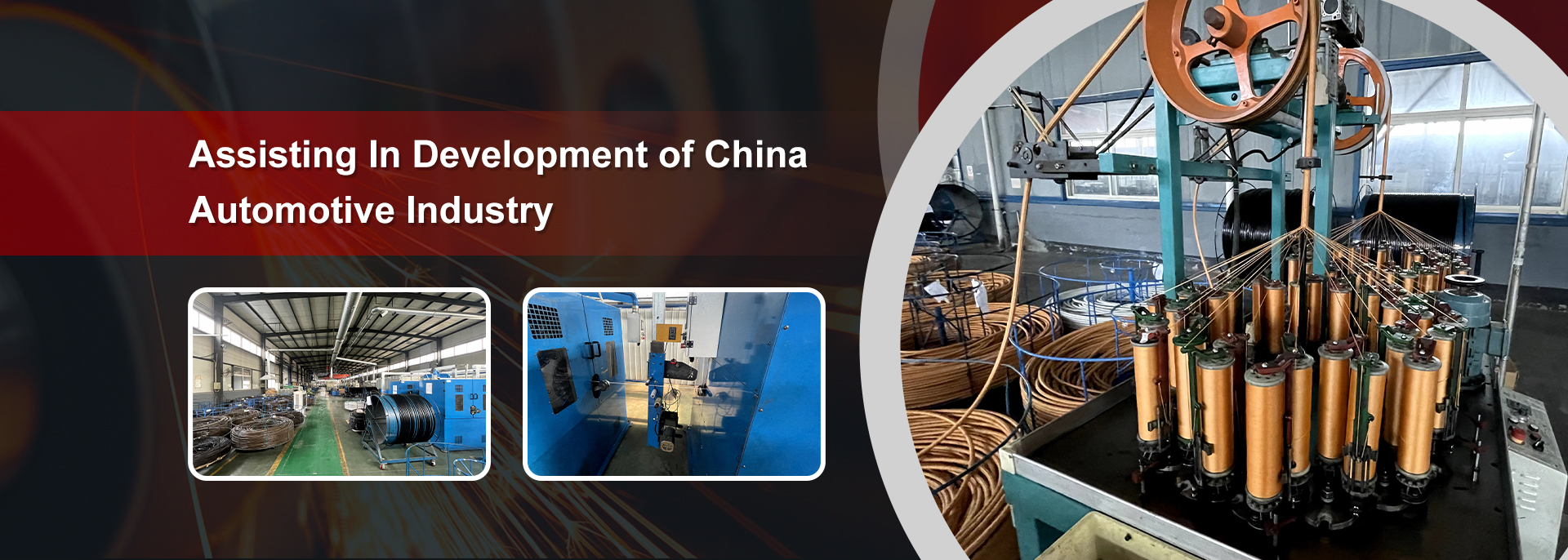power steering hose removal
A Step-by-Step Guide to Power Steering Hose Removal
Power steering is an essential component of modern vehicles, making it easier to steer and maneuver. However, over time, the power steering hoses can wear out, become damaged, or develop leaks. When this happens, you'll need to remove and potentially replace the power steering hose. In this article, we will guide you through the process of removing a power steering hose, ensuring you can tackle this task confidently and safely.
Tools and Materials Needed
Before you begin, gather the following tools and materials
- A ratchet and socket set - Adjustable wrench - Pliers - Drain pan - Clean rags - New power steering hose (if replacement is needed) - Power steering fluid - Safety gloves and goggles
Steps for Removing the Power Steering Hose
Step 1 Safety First
Before starting any work on your vehicle, safety should be your top priority. Park your vehicle on a level surface and engage the parking brake. It’s also advisable to wear safety goggles and gloves to protect yourself from fluids and sharp edges.
Step 2 Locate the Power Steering Hose
Open the hood of your vehicle and locate the power steering reservoir. The power steering hose connects the reservoir to the power steering pump and the steering gear. Depending on the vehicle make and model, you might need to consult the owner’s manual to find the specific location of the hoses.
Step 3 Prepare for Fluid Spillage
Power steering fluid is under pressure, and removing the hoses can cause it to spill. To avoid a mess, place a drain pan underneath the connection points of the power steering hose. This will catch any fluid that leaks during the removal process.
Step 4 Disconnect the Hose from the Reservoir
Using the adjustable wrench, loosen the clamp or fitting that secures the hose to the power steering reservoir. Carefully twist and pull the hose away from the reservoir. If it’s stuck, gently wiggle it while pulling to free it from any grips.
power steering hose removal

Step 5 Remove the Hose from the Steering Pump
Next, move to the steering pump. Again, use the adjustable wrench to loosen the fitting or clamp here. Be prepared for some fluid to leak out. Once it’s loosened, carefully pull the hose off the steering pump.
Step 6 Inspect the Hose and Connections
With the hose removed, take a moment to inspect the hose and the fittings for any signs of damage or wear. If you're replacing the hose, compare it with the new one to ensure compatibility.
Step 7 Clean the Connection Points
Before installing the new hose, clean the fittings thoroughly. Remove any old power steering fluid and debris. This will help ensure a tight seal when you attach the new hose.
Step 8 Install the New Power Steering Hose
Take the new power steering hose and connect it to the steering pump first. Ensure it fits snugly and tighten the fitting using the adjustable wrench. Repeat the same process for the connection to the power steering reservoir.
Step 9 Refill Power Steering Fluid
Once the new hose is securely in place, refill the power steering reservoir with fresh power steering fluid to the recommended level. Be sure to check your vehicle’s manual for the proper type of fluid.
Step 10 Test for Leaks
Start the engine and allow it to run for a few minutes, turning the steering wheel from lock to lock. This helps the new fluid circulate. After a few minutes, check for any fluid leaks around the connections. If you notice any leaks, tighten the fittings until they are secure.
Conclusion
Removing and replacing a power steering hose may seem daunting, but by following these steps, you can tackle the job efficiently. Always ensure you have the right tools on hand and take necessary safety precautions. If at any point you feel uncertain, consult a professional mechanic for assistance. Properly functioning power steering is crucial for safe driving, so don’t hesitate to address any issues promptly!
-
Ultimate Spiral Protection for Hoses & CablesNewsJun.26,2025
-
The Ultimate Quick-Connect Solutions for Every NeedNewsJun.26,2025
-
SAE J1401 Brake Hose: Reliable Choice for Safe BrakingNewsJun.26,2025
-
Reliable J2064 A/C Hoses for Real-World Cooling NeedsNewsJun.26,2025
-
Heavy-Duty Sewer Jetting Hoses Built to LastNewsJun.26,2025
-
Fix Power Steering Tube Leaks Fast – Durable & Affordable SolutionNewsJun.26,2025

